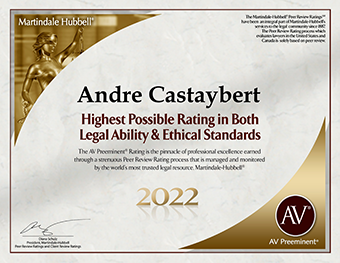Matal v. Tam “Feeds” Second Circuit Food Truck Ruling
On January 3, 2018, the Second Circuit held that the “Wandering Dago” food truck (“WD”) was unconstitutionally excluded from a New York State lunch program because of its use of ethnic slurs. The opinion repeatedly cites to the 2017 case Matal v. Tam, in which the Supreme Court held that the USPTO’s prohibition of disparaging trademarks violated the First Amendment.
In Wandering Dago, Inc. v. Destito, the food truck featured the slur “Dago” in its name, and it also served sandwiches called “Goombah,” “Guido” and “Polack.” According to the owners of the truck, the slurs were used in a mocking way to “signal to . . . immigrant groups that this food truck is for them.” The New York State Office of General Services (OGS), however, found the slurs offensive and denied WD’s participation in New York’s “Summer Outdoor Lunch Program” on this basis.
WD brought a §1983 action against OGS, alleging that the denial amounted to a violation of the First and Fourteenth Amendments, as well as the New York State Constitution. The district court granted summary judgment in defendants’ favor, holding that constitutional protection did not apply to WD’s speech because it was either:
- government speech,
- private speech contracted by the government, or
- private speech in a government forum.
In its reversal, the Second Circuit held that OGS had engaged in viewpoint discrimination, because WD’s use of ethnic slurs reflected a viewpoint “about when and how such language should be used,” and the truck was denied access solely on account of this viewpoint. The unanimous panel disagreed with the district court on whether constitutional protection applied to WD’s speech, holding that:
- it was not government speech, as it was “implausible that OGS, by permitting WD’s full participation in the Lunch Program, would be viewed by the public as having adopted WD’s speech as its own,”
- WD, as a private entity seeking to pay for access to a forum for food trucks, was not contracted by OGS, and
- whether the private speech was conducted in a private or public forum was legally irrelevant.
Finally, the Court examined whether there was a compelling government interest behind OGS’s decision to deny WD’s application. The record did not support such a finding. The Second Circuit reversed the district court’s grant of summary judgment to OGS and awarded summary judgment to WD on its free speech, equal protection, and state law claims.










